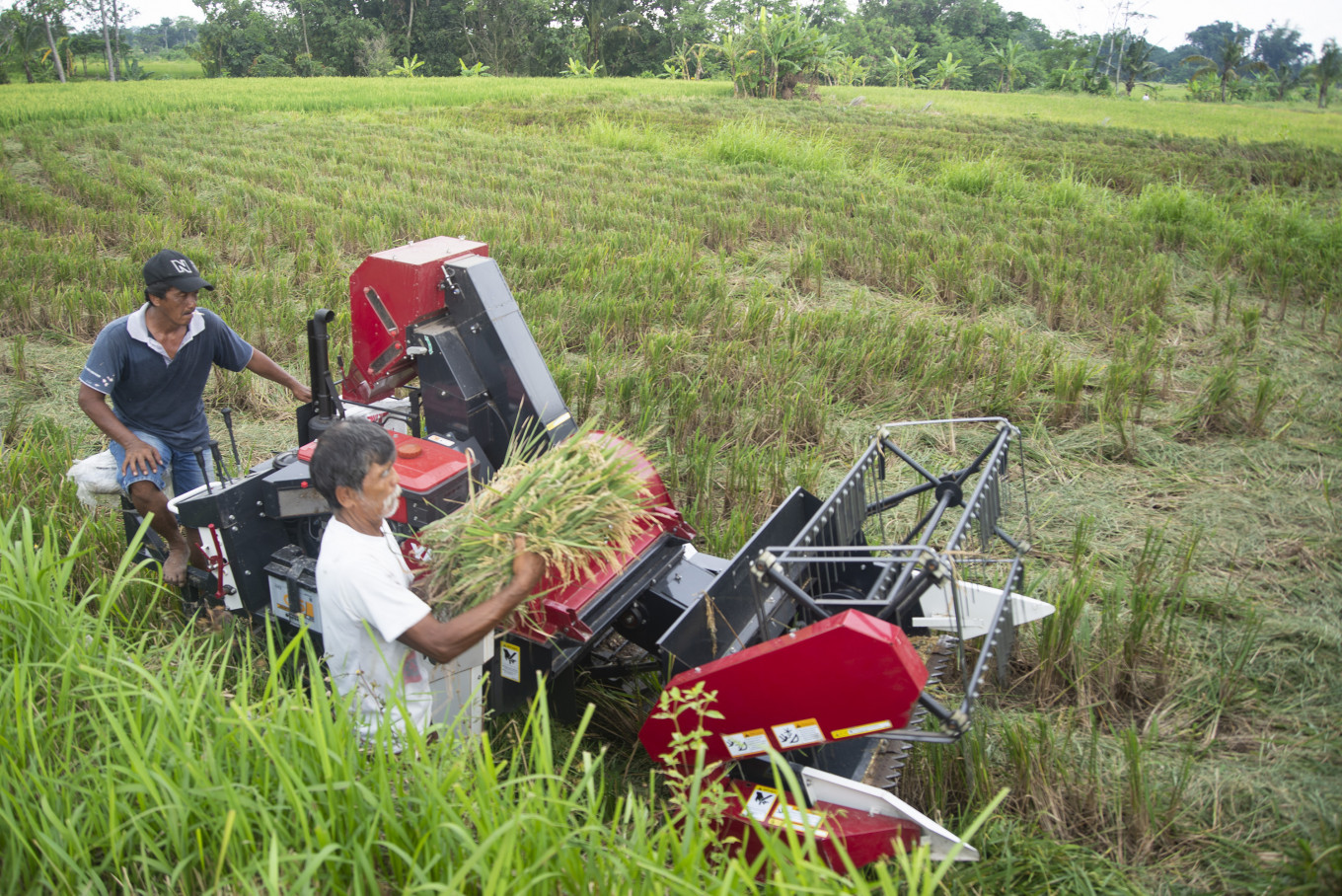Popular Reads
Top Results
Can't find what you're looking for?
View all search resultsPopular Reads
Top Results
Can't find what you're looking for?
View all search resultsGovernment prepares cash aid, production subsidies for farmers in need
The government plans to provide cash and production subsidies for 2.4 million poor farmers to help them produce during the COVID-19 crisis.
Change text size
Gift Premium Articles
to Anyone
T
he government plans to provide cash and production subsidies for 2.4 million poor farmers to help them maintain their harvest and survive the COVID-19 crisis.
Coordinating Economic Minister Airlangga Hartarto said on Tuesday that the aid comprised of Rp 300,000 (US$19.45) a month in cash assistance and production subsidies such as fertilizer and seeds worth another Rp 300,000.
“We hope we can provide it for a three-month period,” Airlangga told an online briefing, without providing further details. “The Agriculture Ministry will lay out the details later.”
The plan emerged as the Food and Agriculture Organization’s (FAO) recently warned against the disruption in the food supply chain on top of the likelihood of a prolonged dry season until June in Southeast Asia, which might have adverse effects on agricultural output.
President Joko “Jokowi” Widodo wants to aid farmers to keep them harvesting and thereby prevent the country’s staple food stocks from depleting further. National stocks for commodities such as onion, rice, corn, cayenne pepper, eggs, chili, sugar and garlic are low in several provinces across the country, government data show.
“Make sure farmers keep producing while complying with the health protocols and the economic stimulus to reach farmers related to our rice production,” Jokowi told an online briefing on Tuesday.
Rice farmers were projected to produce 5.6 million tons of rice at the peak of the harvest season this month, said the President, twice the country’s monthly consumption.
With travel and social restrictions in place to contain the COVID-19 outbreak, food supply chains are somewhat disrupted, causing delays in deliveries. The fast-spreading coronavirus has infected more than 9,500 people in Indonesia and 3 million people worldwide, hurting domestic distribution and shipments of imported products.
“Make sure the distribution is going smoothly so that provinces facing staple food deficits can source the supplies from provinces with a surplus,” said Jokowi. “The transportation of goods between provinces and islands should be free of any disruption.”
Travel and social restrictions had hit farmers hard, because they kept them from finding alternative sources of income outside the harvest season, said Institute for Development of Economics and Finance researcher Bustanul Arifin. Therefore, they needed the assistance to survive.
“I think they need more cash assistance in this pandemic,” Bustanul told The Jakarta Post via text message on Tuesday. “Some farmers probably have received seeds and fertilizer.”
The government has allocated Rp 110 trillion for social safety nets out of its Rp 405.1 trillion extra COVID-19 spending. That budget includes cash aid for citizens within and outside of the Family Hope Program (PKH) as well as conditional cash transfers for staple foods within and outside of the Staple Food Card Program, on top of cash transfers for villages and villagers.









